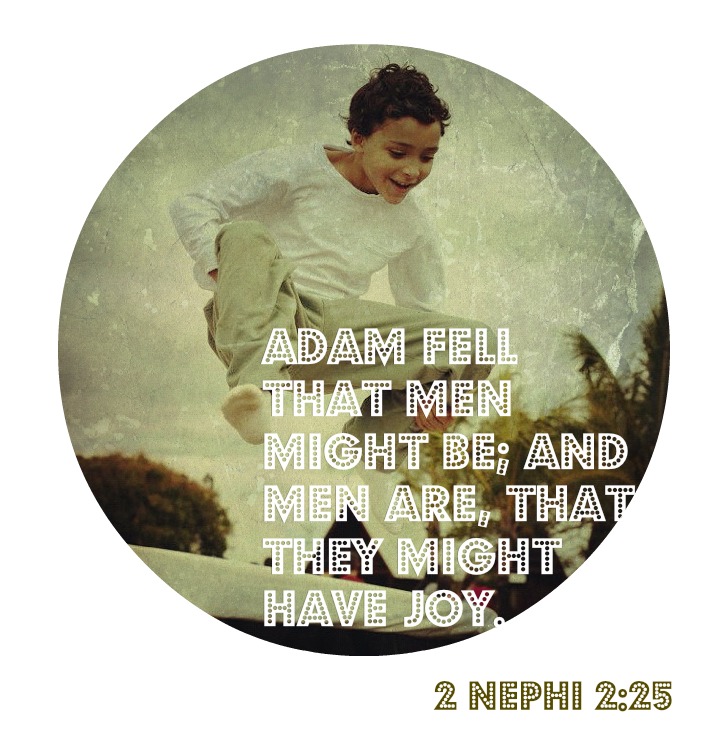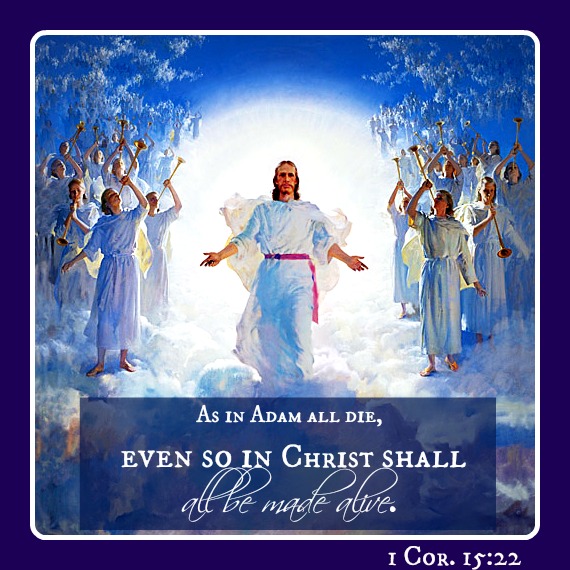I didn’t grow up in any particular faith, but I was taught about God and Jesus Christ. Over time, I developed my own ideas of who God was. Because He is called the Father, I saw in God the qualities of my own father. I looked to a God who was intelligent, who encouraged me to be everything I could be, who was there for me, who wanted me to have the best of his life and more, and a father who was, therefore, loving.
 As I got older and began visiting churches, however, it seemed hard to find this God. The God presented to me just didn’t seem very loving or to have anyone’s best interest at heart. Why would a God who loves His children play favorites, letting some hear the gospel and be saved, while others have no opportunity to hear it and are doomed? Why would He condemn small children who died because their parents failed to baptize them? Why did He put people on Earth in such differing circumstances?
As I got older and began visiting churches, however, it seemed hard to find this God. The God presented to me just didn’t seem very loving or to have anyone’s best interest at heart. Why would a God who loves His children play favorites, letting some hear the gospel and be saved, while others have no opportunity to hear it and are doomed? Why would He condemn small children who died because their parents failed to baptize them? Why did He put people on Earth in such differing circumstances?
Mainstream Christianity didn’t seem to have an answer to those questions. The Mormons, when I met them, did. I listened.
There I found the God I had always known existed. God, the Mormons taught, created our spirits before we were born and kept us with Him for a while. He knew us and we knew Him. This was the personal God I had been seeking, one who loved me because we had a shared history and because He really knew me.
The Mormons taught me that God created the Earth to give us experiences we couldn’t have in Heaven or without a body. He planned our Earth life to be exactly calculated to what we needed. Our own choices would impact our experiences, but we could make of our time on Earth what we chose to make of it. We could choose our attitudes and beliefs and how to live within whatever options were available to us.
I could see for myself how this fit into the idea of a loving God. I noticed that people with very similar circumstances often ended up in different places because of the choices they made and the attitudes they took towards their challenges. I noticed that what was a blessing for one person was a trial for another and that people with seemingly easy lives just faced different kinds of trials.
I learned from the Mormons that God does not punish innocent little children because the atonement covered and protected them. They can’t sin and are not accountable for their choices until they are eight years old. Then they are accountable for what they know.
 I learned from the Mormons that God did not randomly place on in a situation where we’d never hear of Him or of Jesus, thus causing us to suffer eternal punishment. He knew some of us would never have the opportunity to accept Jesus Christ as our Savior. He didn’t put us there because He knew we’d never accept Him anyway. He wanted each of us to have a chance—He wanted each of us to choose eternal life. For this reason, He planned that anyone who did not have the opportunity to accept Jesus Christ as His Savior in this life would receive it in the next. Since baptism is required, He also found a way for someone to be baptized on our behalf if we die without baptism. When that happens, we have the choice to accept it or reject it, just as we would have on Earth. If we reject it, it will be as if it never happened. If we accept it, it will have the same force as if we accepted it during mortality.
I learned from the Mormons that God did not randomly place on in a situation where we’d never hear of Him or of Jesus, thus causing us to suffer eternal punishment. He knew some of us would never have the opportunity to accept Jesus Christ as our Savior. He didn’t put us there because He knew we’d never accept Him anyway. He wanted each of us to have a chance—He wanted each of us to choose eternal life. For this reason, He planned that anyone who did not have the opportunity to accept Jesus Christ as His Savior in this life would receive it in the next. Since baptism is required, He also found a way for someone to be baptized on our behalf if we die without baptism. When that happens, we have the choice to accept it or reject it, just as we would have on Earth. If we reject it, it will be as if it never happened. If we accept it, it will have the same force as if we accepted it during mortality.
I learned that God loved me enough to send His Son to atone for my sins and to die for me in a very personal, individual process. It takes a powerful love to watch your child suffer and not rescue Him from it.
Everything I learned from the Mormons pointed me to a loving God—and this is one reason I became a Mormon.
About Terrie Lynn Bittner
The late Terrie Lynn Bittner—beloved wife, mother, grandmother, and friend—was the author of two homeschooling books and numerous articles, including several that appeared in Latter-day Saint magazines. She became a member of the Church at the age of 17 and began sharing her faith online in 1992.



